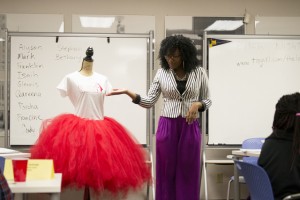By Nic Custer
Many students graduate college hoping to find a job in their desired field.
But some strategic thinkers, such as Charles Herzog, use their time on campus to position themselves for success the minute they earn their degrees.
Charles, 24, graduated from the University of Michigan-Flint Computer Science department in May, knowing he made the most of his education. He transferred to campus from Mott Community College two years ago, graduated with his Bachelors degree and began a job with General Motors in Warren a week after graduation. He will be working as a software developer focusing on vehicle cyber security and vehicle-to-vehicle communication software.
While a student at Mott, Charles was approached by his Calculus professor. Vasu Iyengar asked if he wanted to work on building websites and mobile apps for Med+IT Systems LLC. It is a medical software and consulting company owned by Vasu and his business partner, Adil Mohammed.
Adil Mohammed runs the business in addition to a non-profit, American Muslim Community Services, out of the Innovation Incubator on the UM-Flint campus. He hired Charles, who worked in the co-work space of the Innovation Incubator in the Northbank Center when he wasn’t in class. Charles said, “I tend to get distracted at home” where he lived with his parents. He also found the breezeways on campus, where he used to study, made it hard to focus. He appreciated the quiet professional space of the Incubator, where he could spread out his work and focus. He said his experience in a co-work space helped him towards his goals.
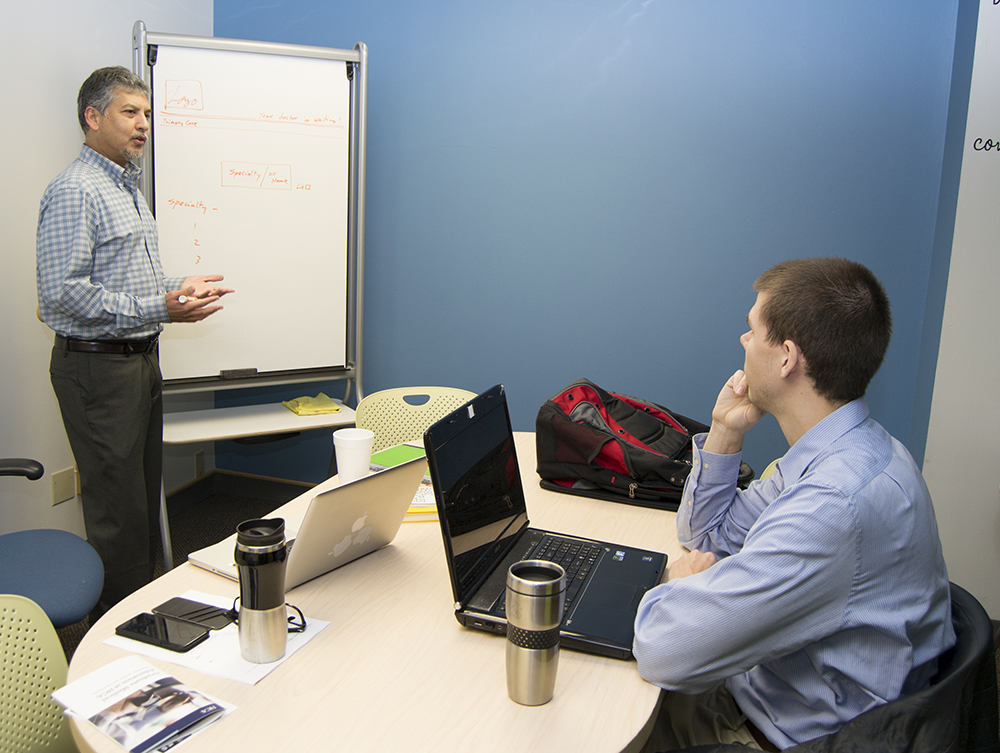

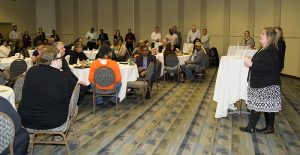

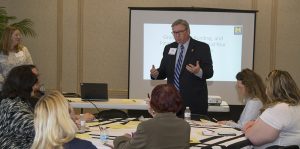
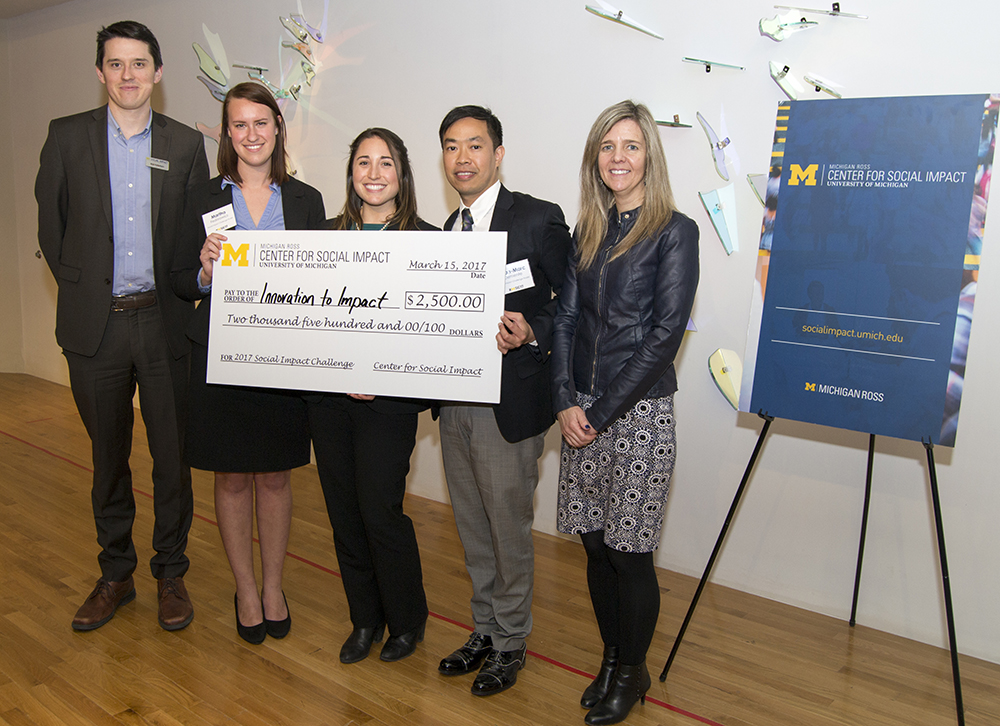
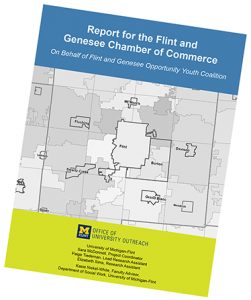
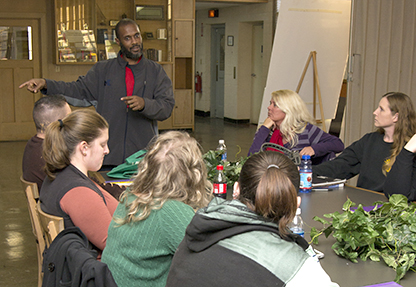
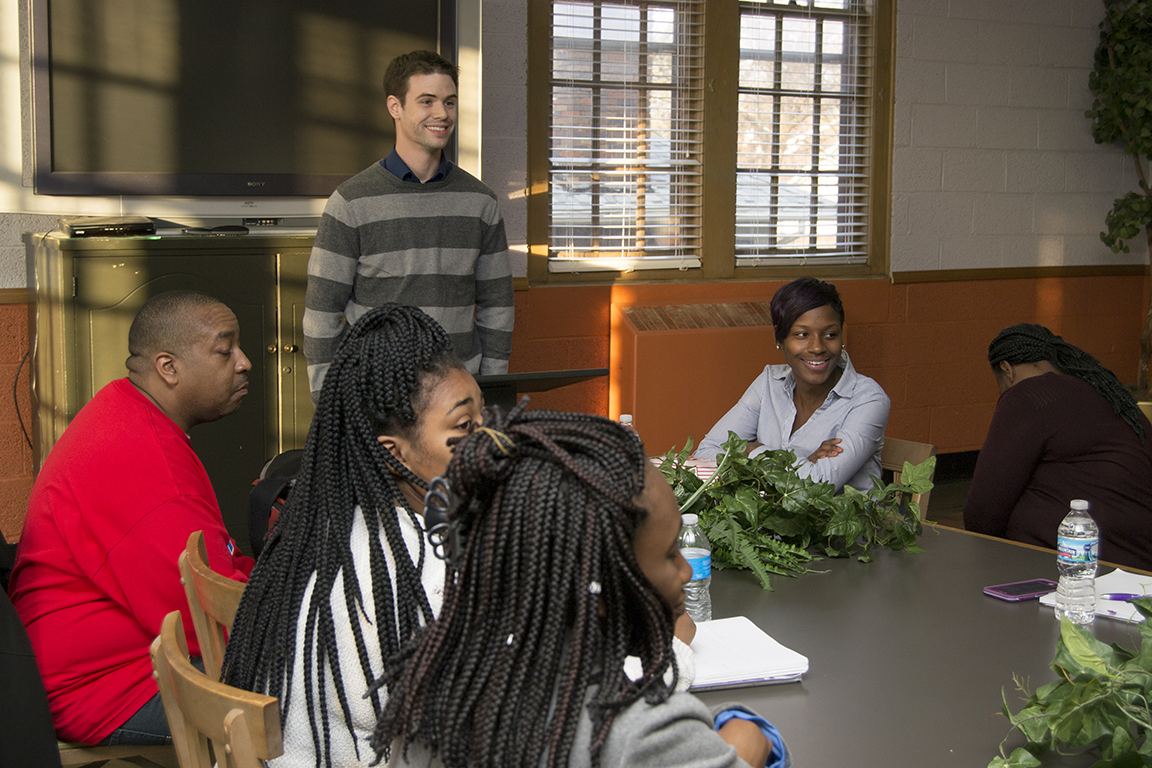
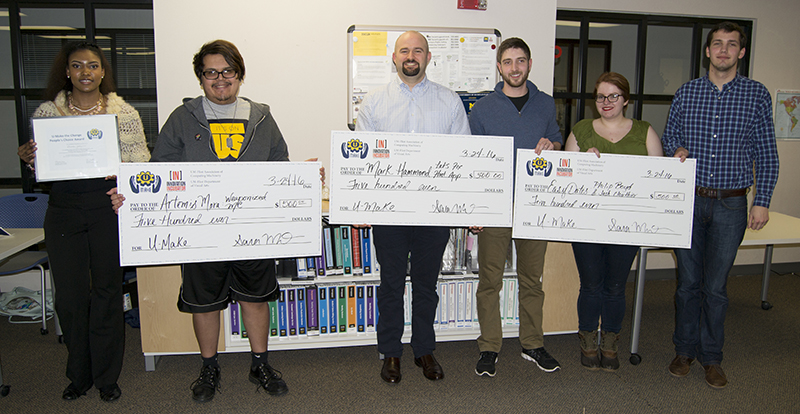
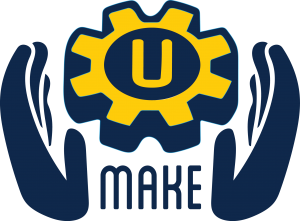
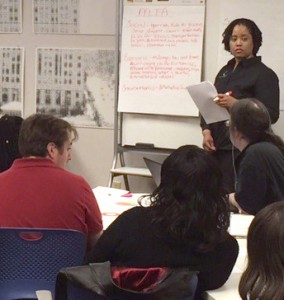
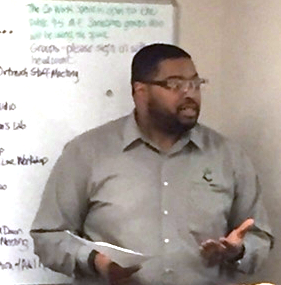
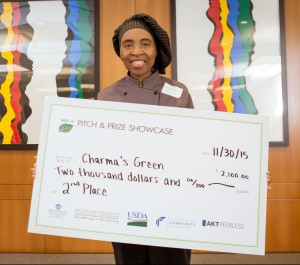
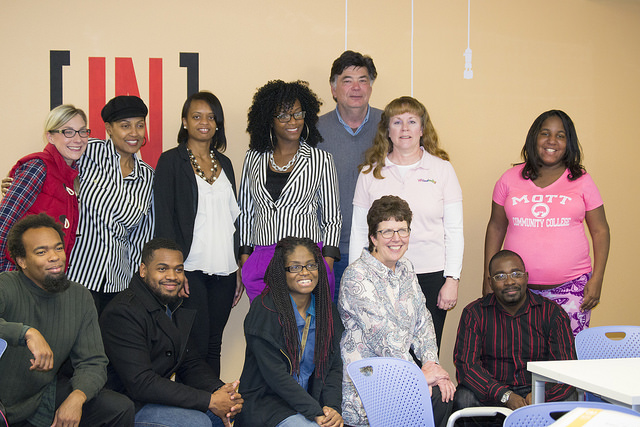
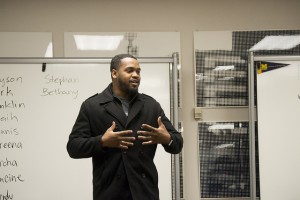 The program was brought to campus through a partnership with Grand Valley State University’s
The program was brought to campus through a partnership with Grand Valley State University’s 